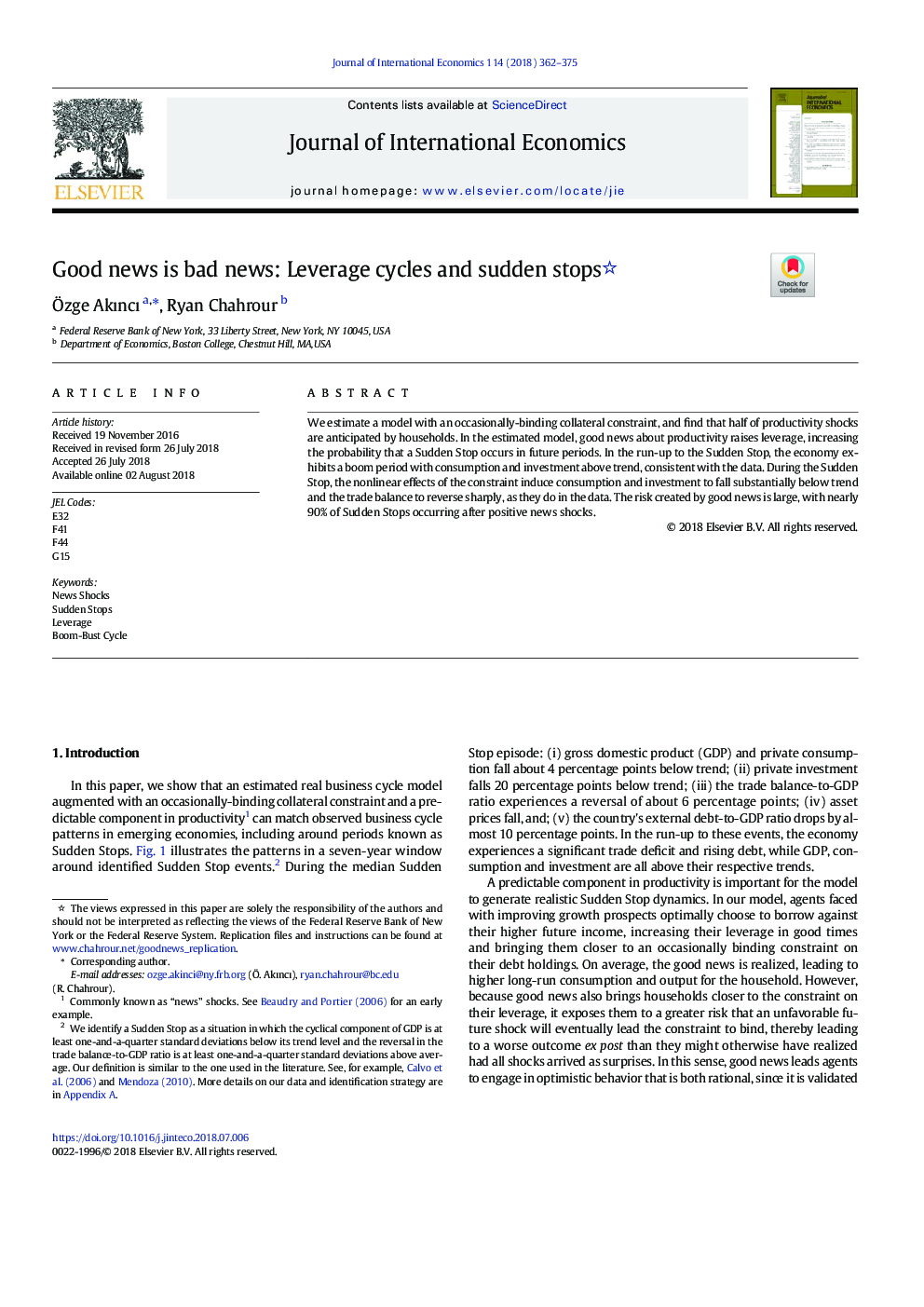| Article ID | Journal | Published Year | Pages | File Type |
|---|---|---|---|---|
| 11004862 | Journal of International Economics | 2018 | 14 Pages |
Abstract
We estimate a model with an occasionally-binding collateral constraint, and find that half of productivity shocks are anticipated by households. In the estimated model, good news about productivity raises leverage, increasing the probability that a Sudden Stop occurs in future periods. In the run-up to the Sudden Stop, the economy exhibits a boom period with consumption and investment above trend, consistent with the data. During the Sudden Stop, the nonlinear effects of the constraint induce consumption and investment to fall substantially below trend and the trade balance to reverse sharply, as they do in the data. The risk created by good news is large, with nearly 90% of Sudden Stops occurring after positive news shocks.
Related Topics
Social Sciences and Humanities
Economics, Econometrics and Finance
Economics and Econometrics
Authors
Ãzge Akıncı, Ryan Chahrour,
